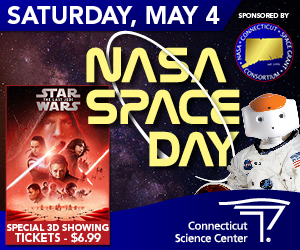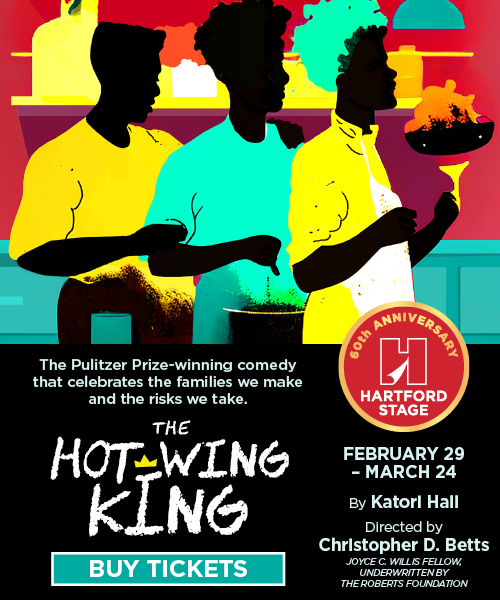By Alex Spencer
Los Angeles-based Ron Finley — aka “The Gangster Gardener” — believes “growing your own food is like printing your own money.”
That’s why in 2010, Finley started digging holes in neglected parkways — the area between the sidewalk and the curb — lining the streets of his South Central neighborhood. Finley planted what he believes is valuable enough to buy a person a healthier, more fulfilled life — seeds.
Local law enforcement originally came after Finley for planting the gardens, smacking him with citation. But in the end, it all worked out.
The city eventually removed the permit requirement for planting in street parkways due to the efforts of Finley and Los Angeles City Council member Herb Wesson. Now, on any given day, community members in Finley’s neighborhood can experience the physical and mental health benefits of living surrounded by fresh greenery.
In Finley’s 2013 TED Talk — which has been viewed nearly 2.3 million times — about his gardening activism he told the audience “If you want to meet with me, come to the garden with your shovel.” And in the years since, he hasn’t stopped getting his hands dirty — in Los Angeles and beyond.
That’s why on Monday, Oct. 24, he hosted “The Last March” in Washington D.C., where he and others walked three miles from the district’s Anacostia Park — located in a community deemed as a “food desert” or a place that lacks access to fresh food and vegetables — to the Treasury Department. In nearby Constiution Gardens, the group planted Finley’s paper “bills” that are attached to seeds.
We caught up with him to find out more about the march, and why he knows “we have the integrity to feed and fend for ourselves.”
WORD IN BLACK: Why “The Last March”? Why that name?
RON FINLEY: They called it the last march ‘cause I don’t march. I don’t believe in marching…Me putting in gardens is my march. This is my revolution. And I think if you’re doing a revolution and you want to be in stealth mode, you don’t tell them what you’re doing. And that’s where I’m from. You don’t tell your opposers, your enemies what you plan to do.
WIB: What was the march all about? What message were you all trying to send to the government?
RF: It wasn’t like we were begging, “oh, please bring us healthy food. Oh, please stop closing all the stores.” And you know, “please serve us.” ‘Cause it’s like I said, underserved neighborhoods are underserved for one reason — ‘cause they don’t serve them. That’s the only reason.
The bottom line is how do we change our DNA?
Where we start changing ourselves, fending for ourselves, stop harming ourselves and our family and everybody around us, where we protect each other, we become a family. We become a neighborhood. We become a culture, just based on health, safety, wellness, and protecting our seeds — our kids. That’s what this march was about.
WIB: Speaking about the disconnect that many people have between themselves and growing food, where do you think this came from? Do you think slavery had anything to do with it?
RF: A lot of people associated [growing food] with enslavement. And it was like, “I’m not enslaved, so I’m trying to get as far away from soil as humanly possible,” not realizing that that’s the goal. The difference was you didn’t own the property…The people that enslaved people, where did their wealth come from? It came from you working the land…So, now imagine it’s your land and you work it. You get the benefits. That’s where the disconnect came from.
The disconnect came from fast food. You know, the disconnect came from us not sitting down and harvesting and eating our food and growing our own fruit because food became convenient.
WIB: What do you think it will take to heal that disconnect?
RF: Put some food in the ground. That’s what’s gonna bring us back. Educating and showing kids from day one to have them pledge allegiance to the soil. Have them pledge allegiance to themselves. Have them realizing that they have a value.
…Did anybody tell you that in elementary school? You’re the most valuable thing on this planet? That you have an intrinsic value? That you’re the most precious? The most worthy? I ain’t never heard that in school. All I got was “I pledge my allegiance” and it wasn’t to me. So, that’s what’s gonna bring us back, is to change our value and to change our DNA of what truly has value.
WIB: Thanks for sharing that. Let’s talk about the kits you offer to people who live in “food deserts,” or as you call them, “food prisons.” What can people who live in these places expect to receive when they order one?
RF: Well, when they get the kits, they’re gonna get instructions on how to plant this money. The money has seeds, not embedded in the paper, like literally on the paper. And the denomination on the money represents — if all the seeds come to fruition — that’s how much the produce, give or take, is worth.
…If the bill is $150 and it’s tomatoes, that’s what you get…Whatever the bill denomination is, that’s what the product is worth when you grow your food. All the seeds are organic too.
WIB: You’ve been at this work for over 10 years now. What have you witnessed, as far as people reconnecting with the land and incorporating growing into their lives?
RF: I’ve seen this stretch around the world. I have a MasterClass that was the biggest MasterClass in the universe in 2021 on gardening. So I’ve seen people from England to Inglewood, you know, from Compton to Copenhagen. I’ve seen what’s changed their lives with growing, planting, and harvesting and cooking their own food.
And people call me or email me or DM me with these testimonies that are sometimes heart wrenching…What you need to realize is how many people have never eaten food off of a tree. They’ve never had a fresh orange that they picked. They’ve never had an apple or a pear, an apricot, that they literally got off of a tree. They don’t even know what the trees look like. And that’s probably most of the population. It’s probably the biggest percentage of the population. So that’s what’s gonna change it.
I mean, there should be a food equity, a food responsibility, a food sovereignty class in elementary school. Food 101, where you are taught the significance and the value of food, the appreciation for food. And it doesn’t exist, unless you’re doing something like, Alice Waters’ Edible Schoolyard, where they’re teaching kids the value of food.
WIB: What are some words you’d like to leave with readers about their connection to the land?
RF: You’ve seen the vegetables that you buy and they have the stickers on them with numbers. Do you know what those numbers mean? Most people don’t. And it’s easy to find out…Those numbers are telling you if this food’s going to kill you or not. It’s telling you if it’s organic. It’s telling you if it’s commercially grown — that means commercially it can be sprayed with anything almost. And it also tells you if it’s GMO (genetically modified organism). So, the information is there right in front of us, but not most of us don’t know how to use it.
That’s one of the first things I would want people to know is to find out what you’re putting in your body, ‘cause it’s killing you. It ain’t slowly. And it’s something that we need to really take responsibility for. Our health is our responsibility. It’s nobody else’s responsibility…But the bottom line is to protect our seeds. Our seed, our young children, plus also our seeds, because the seeds that we grow and plant, they’re under attack too. They’re trying to get rid of all seeds that regerminate and most people don’t know this.
…A lot of the new fruits and vegetables, they don’t have seeds. They’ve eliminated the seeds. These farmers have to buy new seeds every season instead of using seeds they got…I want people to care about something else beyond themselves and realize that we have a responsibility to each other.
…That’s what this is about. It’s not even really about food, you know? It’s about freedom. So yeah, that’s what I want people to do. Just everybody get together and plant some sh*t.





